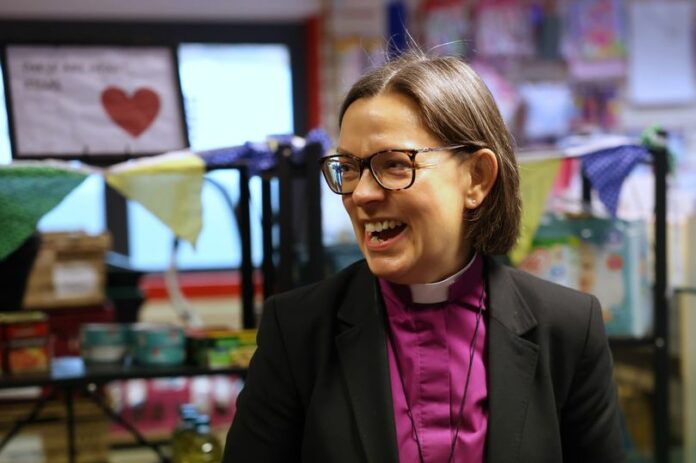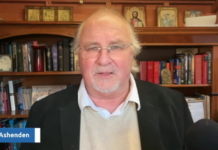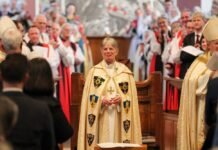All smiles and sporting trainers of a snazziness you would not expect from a Church of England bishop, Helen-Ann Hartley makes for an unlikely rebel.
Those who have met Helen-Ann during her 18 months as Bishop of Newcastle, or perhaps heard her contributions to BBC radio or in the House of Lords, could testify to an enthusiastic person determined to both represent the North East on the national stage and to make the Church relevant to its community.
But her profile was raised significantly last month when she became the most senior figure in the Church to call for the resignation of its leader, Archbishop of Canterbury Justin Welby, after a damning review into a prolific abuser associated with the Church.
Though that call was successful, Bishop Helen-Ann has remained – to her great disappointment – the only bishop to publicly speak out. Undeterred, she has also criticised the Archbishop of York, Stephen Cottrell – soon to take over as the most senior figure in the Church of England – over his own failures on sexual abuse within the Church.
Her public stances have earned both support and criticism, as well as cold shoulders from many of her fellow bishops, but she has remained steadfast in taking on her boss, her soon-to-be-acting boss and the other bishops who have allowed a crisis to grip the Church.
That crisis began in November when a review by former social work director Keith Makin found that the most prolific serial abuser to
be associated with the Church of England might have been brought to justice had the Archbishop of
Canterbury formally reported it to police a decade ago.
John Smyth’s “abhorrent” abuse of more than 100 children and young men was covered up within the Church of England for years, the Makin review found, and Archbishop Welby “could and should” have formally reported the abuse to authorities in 2013.
The publication of the review came at a time when safeguarding, and problems with the Church’s hierarchies, were very much on Bishop Helen-Ann’s mind.
Just a few days earlier, she had received a letter from the two Archbishops calling for her to reconsider a decision to bar former Archbishop of York John Sentamu from an active role in the Newcastle diocese after a separate report found that he too had failed to act on a sexual abuse disclosure.
Feeling that their letter showed both “coercive language” and “a complete lack of awareness of how power dynamics operate in the life of the Church”, she soon after found herself having a regular meeting with a journalist.
She said: “Putting all of these bits of the jigsaw together – the letter I’d had, the Makin review – I thought the fact that the Church has been sitting on this for seven years, the Archbishop had been sitting on this for seven years, if I’m asked the question should the Archbishop of Canterbury resign, I’m going to have to say yes.
Read it all in The Chronicle



